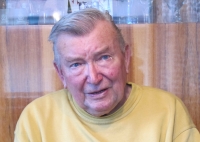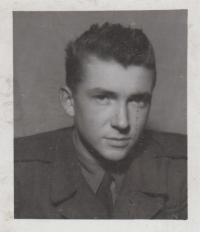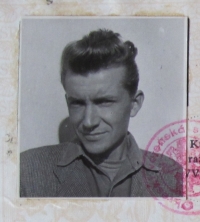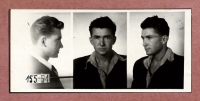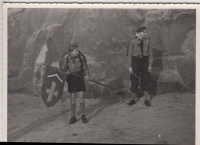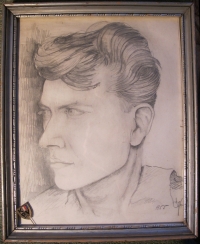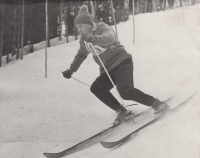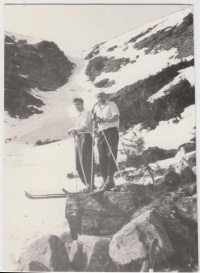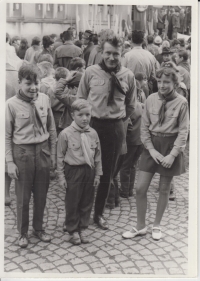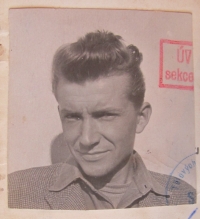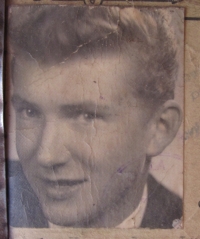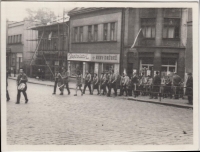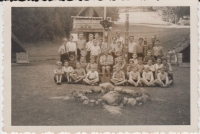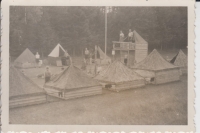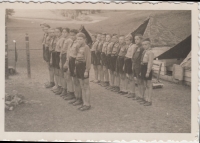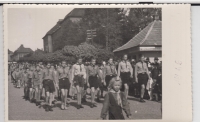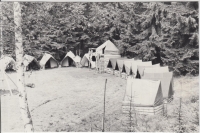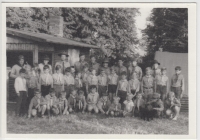After Junák was banned in Jilemnice, he and his friends founded an illegal group
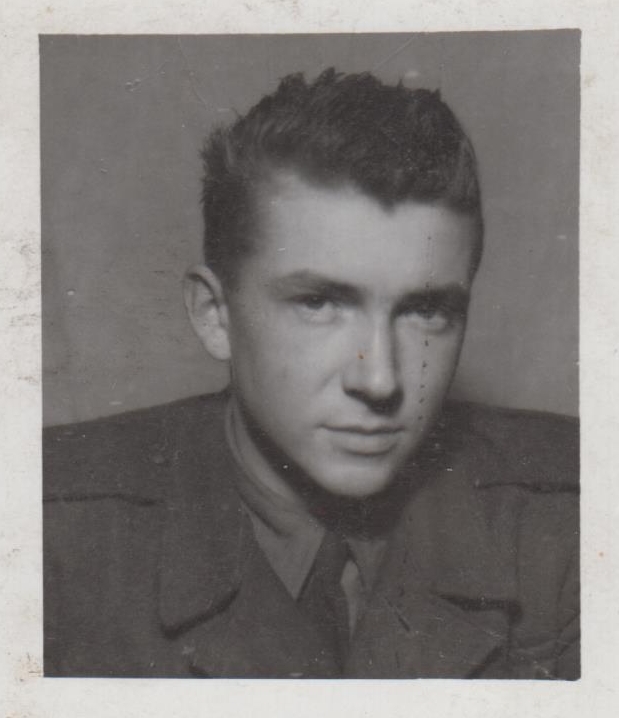
Download image
Jan Kazda was born on 13 July 1931 in the village of Horky near Stará Paka. His father worked as a railwayman, his mother took care of the household. He had a brother five years older. The family survived the war without any major problems. In Nová Paka, where they moved in 1935, they experienced the transport of the Jewish community, the arrival of German refugees from the Red Army from Silesia and Hungary, and the transfer of Russian prisoners of war. From 1946, Jan Kazda trained to be a shop assistant in Jilemnice and became intensively involved in the Scout movement. After the communist ban on the Junák, he and his friends continued to meet and founded an illegal group of ten members. In 1952, four members of the group attempted to emigrate with a small plane, but were arrested after being reported. The other members of the Scout group were arrested by State Security a few years later. After school, Kazda joined the coal mines in Litvínov. In 1952 he started his military service. On 5 June 1954, a few months before his return to civilian life, State Security came for him. He was interrogated without violence in Liberec and later in Pardubice. Investigators tried to link the scouts with an illegal group from the Orlické Mountains, with whom they were allegedly cooperating. They accused Kazda of getting two lamps for the radio and of passing a message to an alleged agent walker. The trial took place on 10 January 1955 in Prague at the Supreme Military Court. The members of the group received sentences ranging from three to eighteen years for treason and espionage. Jan Kazda was sentenced to four years’ imprisonment and forfeiture of all property. The beginning of his sentence was served in Pankrác, where he glued paper state flags. He was then transferred to the Jáchymov region, where he mined uranium ore in the Eliáš camp. He experienced an escape attempt by his fellow prisoners, when all but one were caught. In July 1956 he was released on parole. On his return, he married and started a family. He worked as a maintenance worker at the Regula plant, then at the Helveta plant. Both of his children had trouble getting into secondary school because of their father’s cadre record. During the politicallly relaxed atmosphere in 1968, Jan Kazda revived the Junák in Nová Paka. He gave up scouting in 1970 after it was banned again and members were forced to join Pioneer organization. After 1989, a second attempt to revive Junák in Nová Paka was successful and Jan Kazda continued scouting until his old age. After the fall of communism he was awarded as a participant in the anti-communist resistance.
